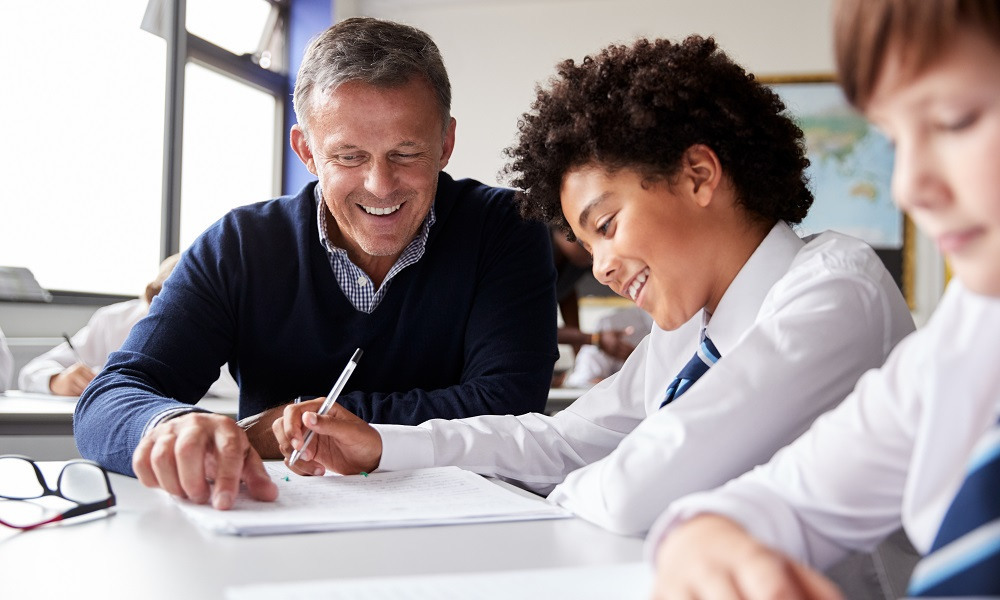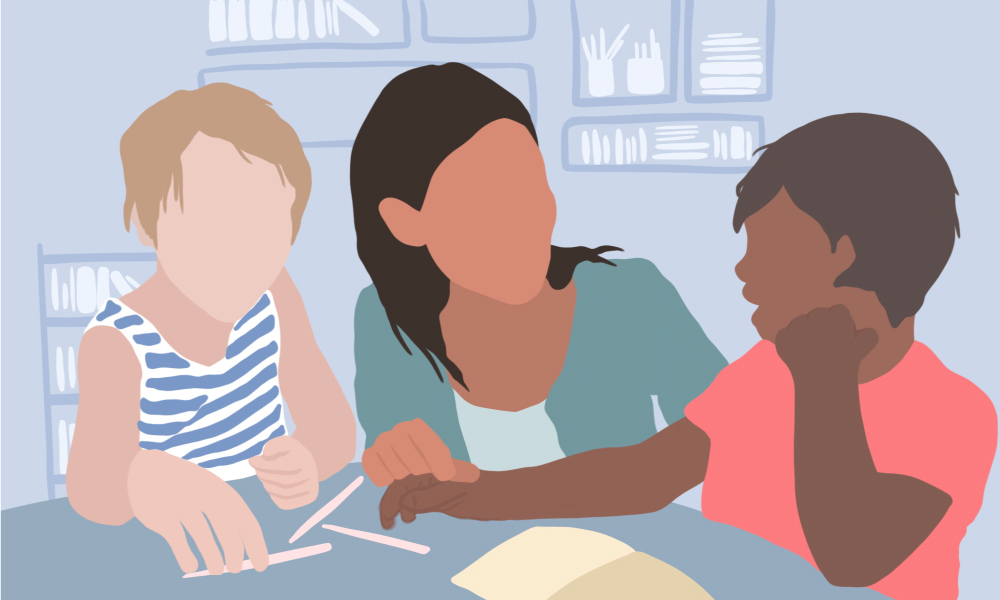A strong teacher-student relationship is the foundation of a positive learning environment. When students trust and respect their teachers, they feel more motivated, engaged, and supported in their academic journey. Similarly, teachers who build genuine connections with students can foster a culture of mutual respect, open communication, and academic success.
In this article, we’ll explore the importance of teacher-student relationships, key strategies for building trust and respect, and how a positive classroom environment enhances student learning and well-being.
Why Teacher-Student Relationships Matter

A strong teacher-student relationship goes beyond academics—it influences students’ personal growth, self-confidence, and overall success.
- Encourages Student Engagement – Students are more likely to participate in class and take academic risks when they feel supported.
- Enhances Classroom Behavior – Trusting relationships reduce disciplinary issues and promote self-regulation.
- Boosts Academic Performance – A positive connection with a teacher can increase motivation and learning outcomes.
- Supports Emotional Well-being – Teachers who care help students feel valued, heard, and emotionally safe.
- Prepares Students for the Future – Learning respect, responsibility, and communication skills helps students succeed beyond the classroom.
Strategies for Building Trust and Respect in the Classroom
1. Foster Open Communication
🔹 Listen actively – Make students feel heard by maintaining eye contact, acknowledging their ideas, and asking follow-up questions.
🔹 Encourage dialogue – Create a space where students feel comfortable expressing thoughts, asking questions, and seeking help.
🔹 Be approachable – Show students that you’re available by maintaining a welcoming attitude and open-door policy.
2. Show Genuine Care and Empathy
🔹 Learn about your students – Take the time to understand their backgrounds, interests, and learning styles.
🔹 Be empathetic – Acknowledge students’ challenges and successes, and offer emotional and academic support.
🔹 Check in regularly – Simple gestures like asking, “How are you doing today?” can make a big difference.
3. Set Clear Expectations and Fair Rules
🔹 Establish classroom norms – Clearly communicate behavioral and academic expectations from the start.
🔹 Be consistent – Treat all students fairly and consistently to create a sense of security and trust.
🔹 Encourage student input – Allow students to have a say in classroom rules, which increases ownership and respect.
4. Create an Inclusive and Supportive Environment
🔹 Celebrate diversity – Respect cultural backgrounds, abilities, and perspectives, ensuring every student feels valued.
🔹 Address bullying and discrimination – Take immediate action to maintain a respectful and safe environment.
🔹 Encourage collaboration – Promote teamwork and peer support through group projects and discussions.
5. Be a Role Model of Respect and Integrity
🔹 Practice what you preach – Show kindness, patience, and fairness in all interactions.
🔹 Admit mistakes and show humility – Being open about your own growth helps students learn accountability.
🔹 Use positive language – Words like “I appreciate your effort” or “Great question!” encourage confidence and participation.
6. Provide Constructive Feedback and Recognition
🔹 Give specific praise – Instead of general comments like “Good job,” say “I really liked how you explained your reasoning”.
🔹 Offer growth-oriented feedback – Frame corrections in a way that promotes learning and self-improvement.
🔹 Recognize achievements – Celebrate small wins to boost student confidence.
How Positive Teacher-Student Relationships Impact Learning
🔹 Higher Student Engagement – Students participate more when they feel their teacher cares.
🔹 Increased Motivation – A supportive teacher inspires students to work harder and believe in themselves.
🔹 Better Classroom Behavior – Respectful relationships lead to fewer disruptions and more cooperative learning.
🔹 Stronger Academic Performance – Students are more likely to excel when they feel encouraged and challenged.
🔹 Lifelong Impact – Positive interactions with teachers can shape students’ attitudes toward education and personal growth.
Conclusion: The Power of Trust and Respect in Education
Teacher-student relationships shape the classroom experience and have a lasting impact on academic success and personal development. By fostering trust, respect, and empathy, educators create an environment where students feel safe, motivated, and empowered to learn.
🌟 Every interaction matters—when students feel seen, heard, and valued, they thrive! 🌟
How do you build trust and respect in your classroom? Share your thoughts in the comments! 😊📚

